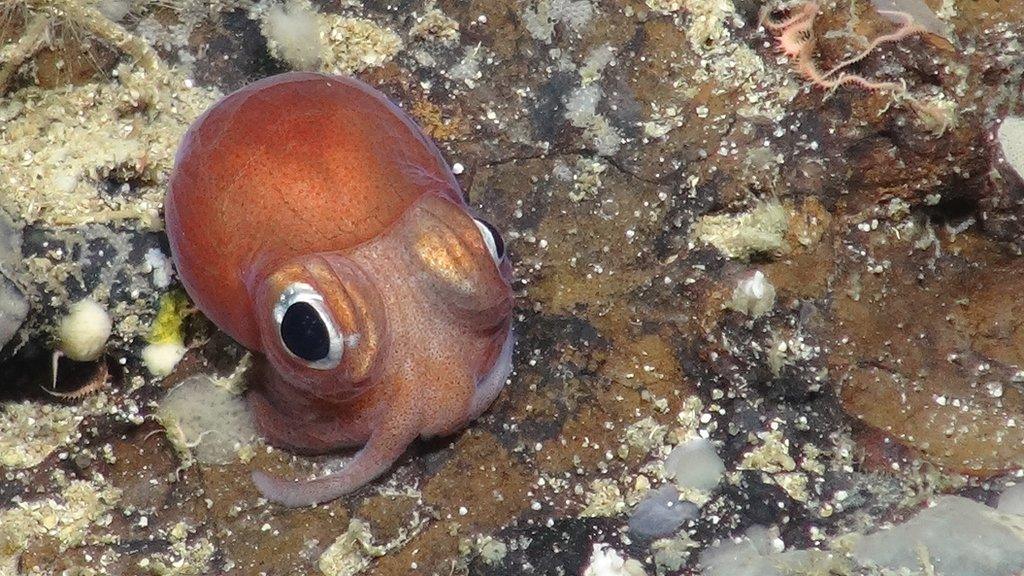Climate change threat to Scotland's seabed, new study warns
- Published
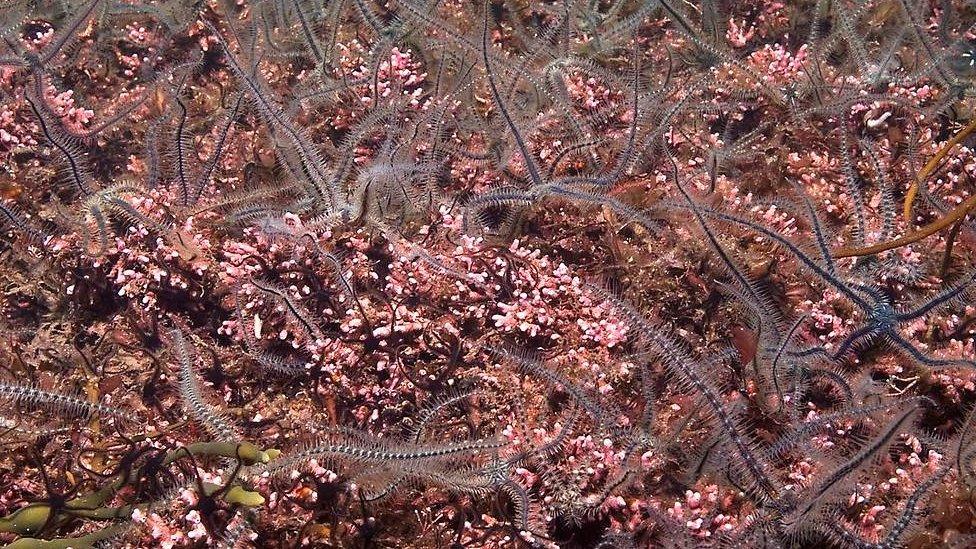
One of Scotland's most important marine ecosystems is at risk of almost vanishing if climate change continues at the current rate, scientists have warned.
New modelling shows the majority of maerl beds will disappear if action isn't taken to slow global warming.
The maerl beds form a spiky "carpet" on the seabed and are an important habitat for smaller marine plants and animals.
But rising sea temperatures are putting the reef-like beds at risk.
Experts from the Lyell Centre in Edinburgh, a collaboration between Heriot-Watt University and the British Geological Survey, have modelled the impact on maerl beds of various climate change scenarios.

Scotland's white beaches are made from fragments of dead maerl, crushed by the waves and bleached by the sun
They found that even in the best-case option, where greenhouse gas emissions fell significantly, about 38% of Scotland's maerl beds would still be lost by 2100.
In the worst case scenario, about 84% of our maerl beds would disappear by the end of this century.
PhD student Cornelia Simon-Nutbrown, who led the research, said: "Maerl beds' survival depends on us making major changes to our greenhouse gas emissions and protecting the beds from anthropogenic activities."
Although maerl beds - also known as red coralline beds - are found all over the world, Scotland provides their European stronghold.
They are found mainly around the west coast and northern isles.
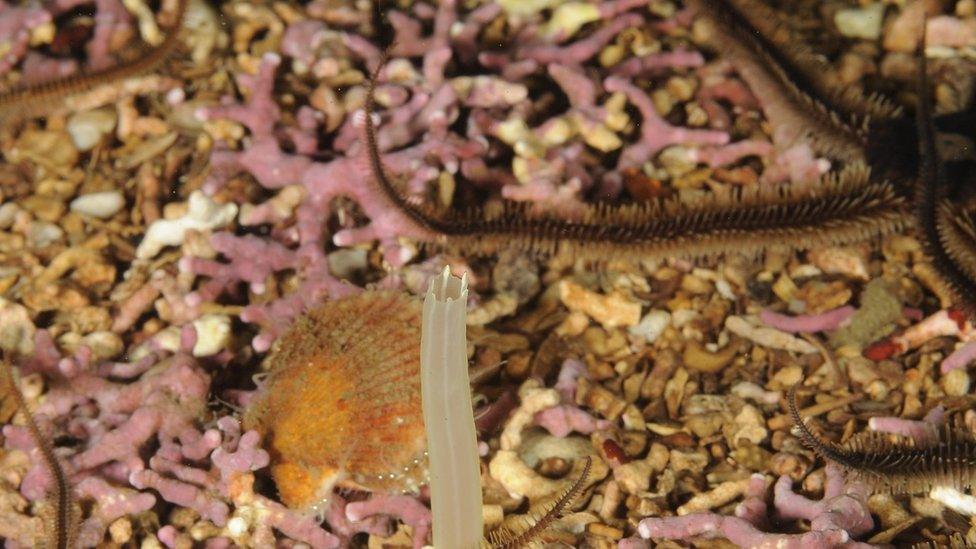
On open coasts exposed to waves, maerl grows as flattened discs but in calmer seas it often forms dense, branched, spiny nodules
As well as scallops, the beds are important nursery grounds for commercially-valuable fish stocks including pollack and hake.
The nooks and crannies of the structure provide shelter for the juvenile fish.
The Lyell Centre study found those areas most likely to survive even the worst case scenario were around Orkney, Shetland and Loch Laxford in the far north-west.
Dredging threat
Although the modelling predicts what will happen between now and 2100, there are more immediate concerns, according to marine conservation expert Prof John Baxter.
He said: "We found that the biggest changes are likely to happen between now and 2050, making the need for conservation action to protect maerl beds even more urgent, not only to protect biodiversity but also their potential to capture and store blue carbon, which is important for climate change mitigation."
NatureScot - Scotland's nature agency - regards maerl beds as a priority marine feature, meaning their protection is critical.
As well as climate change, the beds also face an additional threat from dredging and trawling which can cause serious damage to the seabed where they form.
- Published7 May 2020
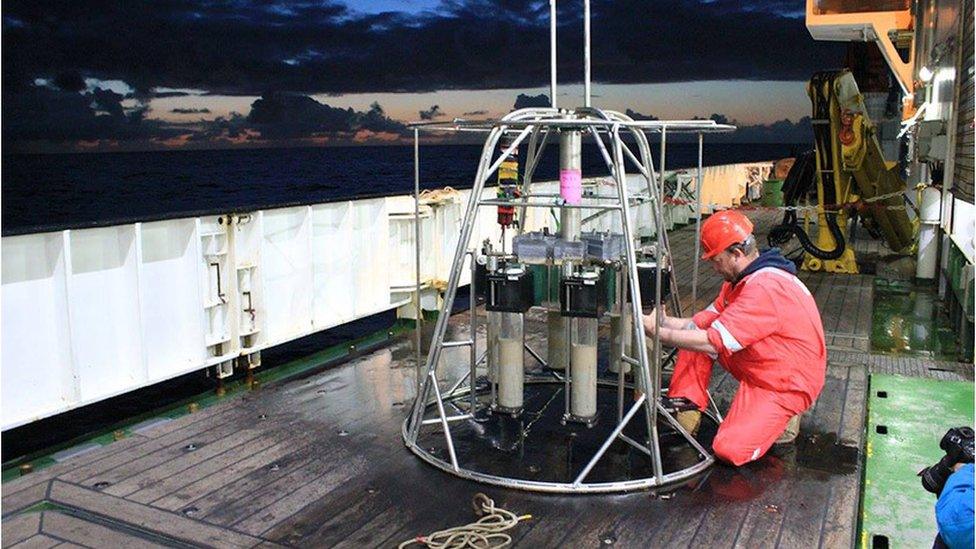
- Published3 October 2019
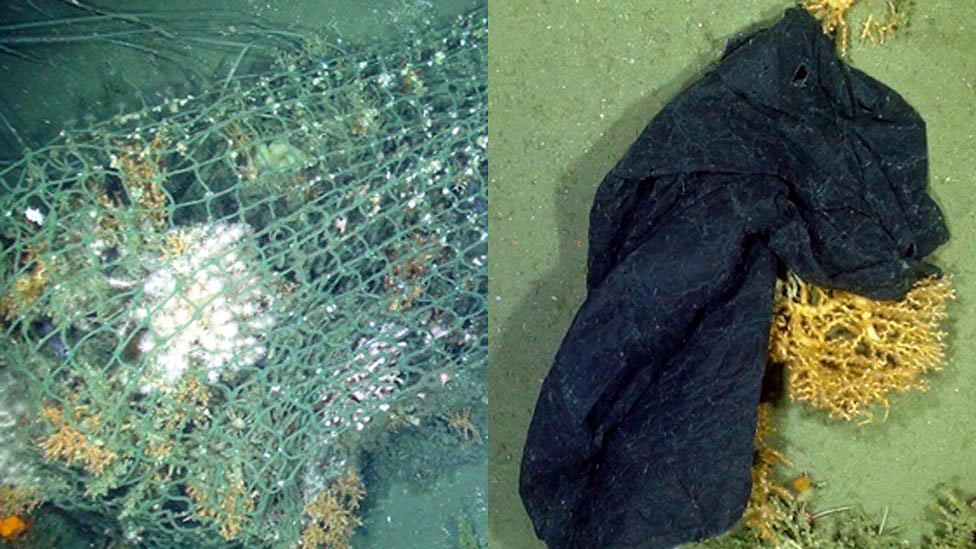
- Published27 September 2019
